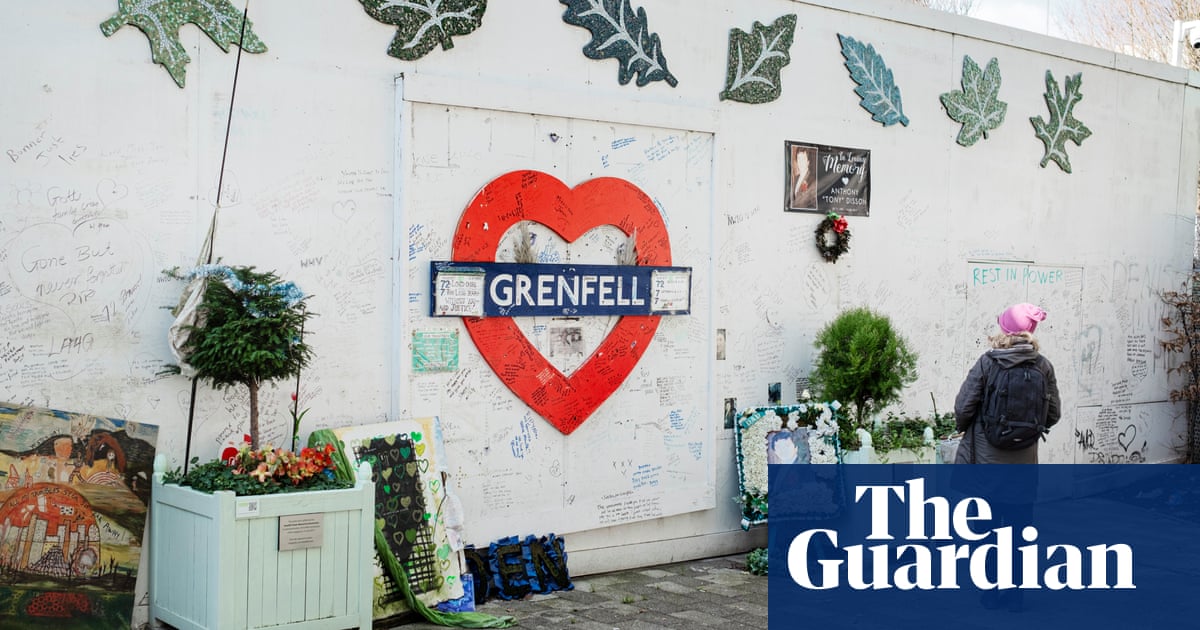The company that made the fridge-freezer blamed for starting theGrenfell Tower firehas been accused in a lawsuit lodged by the local council of failing to run adequate safety tests on that model of appliance.
The Royal Borough Kensington and Chelsea has brought a lawsuit against Hotpoint-maker Beko Europe, previously Whirlpool, as part of wider legal action against companies it believes are culpable for the fire eight years agothat killed more than 70 people.
RBKC, which has brought the suit alongside the borough’s Tenant Management Organisation, washeavily criticised for its handling of the fireand subsequent response in a public inquiry into the tragedy.
The local authority is suing a range of companies at the high court for more than £358m, including those involved with the refurbishment and cladding as well as the maker of the Hotpoint fridge-freezer where the public inquiry concluded the blaze started.
In a legal filing, the borough said that the appliance contained materials that could “catch fire and burn easily”, according to the Financial Times, which first reported the council’s allegations against the appliance maker.
Lawyers representing the claimants argue that the company did not adequately test the materials used in the model against applicable fire standards.
The lawyers claim that if the materials – especially plastic backing, foam and polystyrene – had been tested they would have failed under the Electrical Equipment (Safety) Regulations 1994.
It “should have been obvious to any reasonably competent designer, manufacturer and/or supplier of the fridge-freezer that the plastic backing was not resistant to ignition and/or the spread of fire”, the legal claim states.
Defence documents have not yet been filed with the court, but Whirlpool said that it was “vigorously defending” the legal action.
“Whirpool Corporation disputes and is vigorously defending the proceedings brought by the Royal Borough of Kensington and Chelsea,” the company said. “It would not be appropriate to comment further on ongoing litigation.”
Turkey-based Arçelik and New York-listed Whirlpoolstruck a deal last yearto combine their European domestic appliance businesses under Beko Europe.
At the public inquiry, Whirlpool claimed that the fire could have beenstarted by a lit cigaretterather than an electrical fault.
However, inquiry chair Sir Martin Moore-Bick dismissed this assertion as“fanciful”, saying that the evidence left him in “no doubt that the fire originated in the large fridge-freezer”.
While RBKC is pursuing a number of actions at the high court it also faced strong criticism at the inquiry.
Quentin Marshall, chair of the borough’s housing scrutiny committee with oversight of Grenfell Tower, told the inquiry that the council“lacked a little humanity”in its dealings with residents before the 2017 fire.
His admission came after it emerged that he had personally dismissed residents’ complaints about refurbishment works as“grossly exaggerated”.
The council has said it has made significant changes to its operations since 2017.
A spokesperson for the council said: “We have issued legal proceedings against a number of companies, in line with the council’s ongoing commitment to ensure those parties pay a share of the costs incurred against the public purse.”
